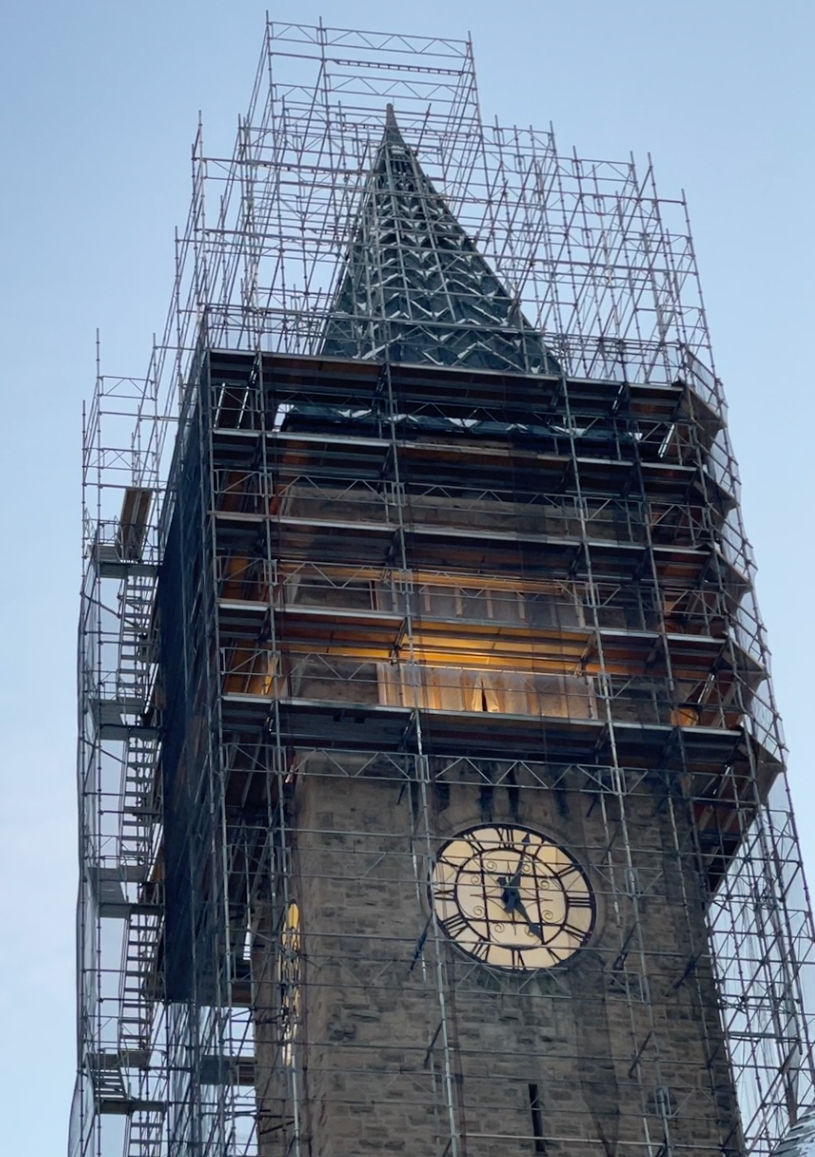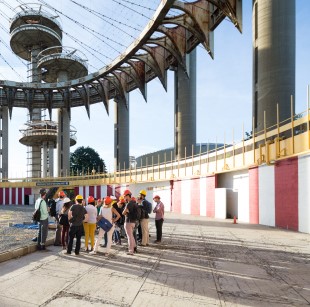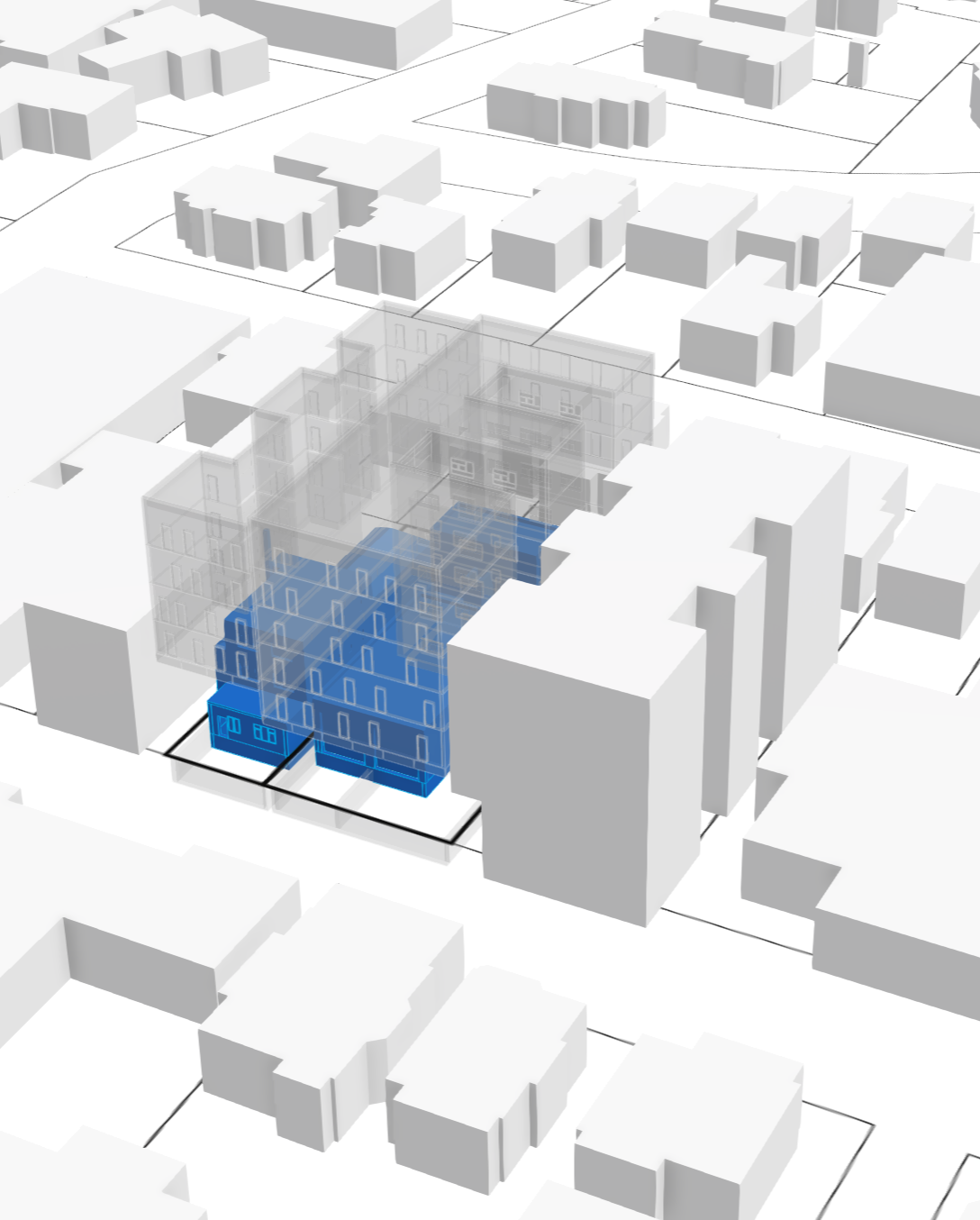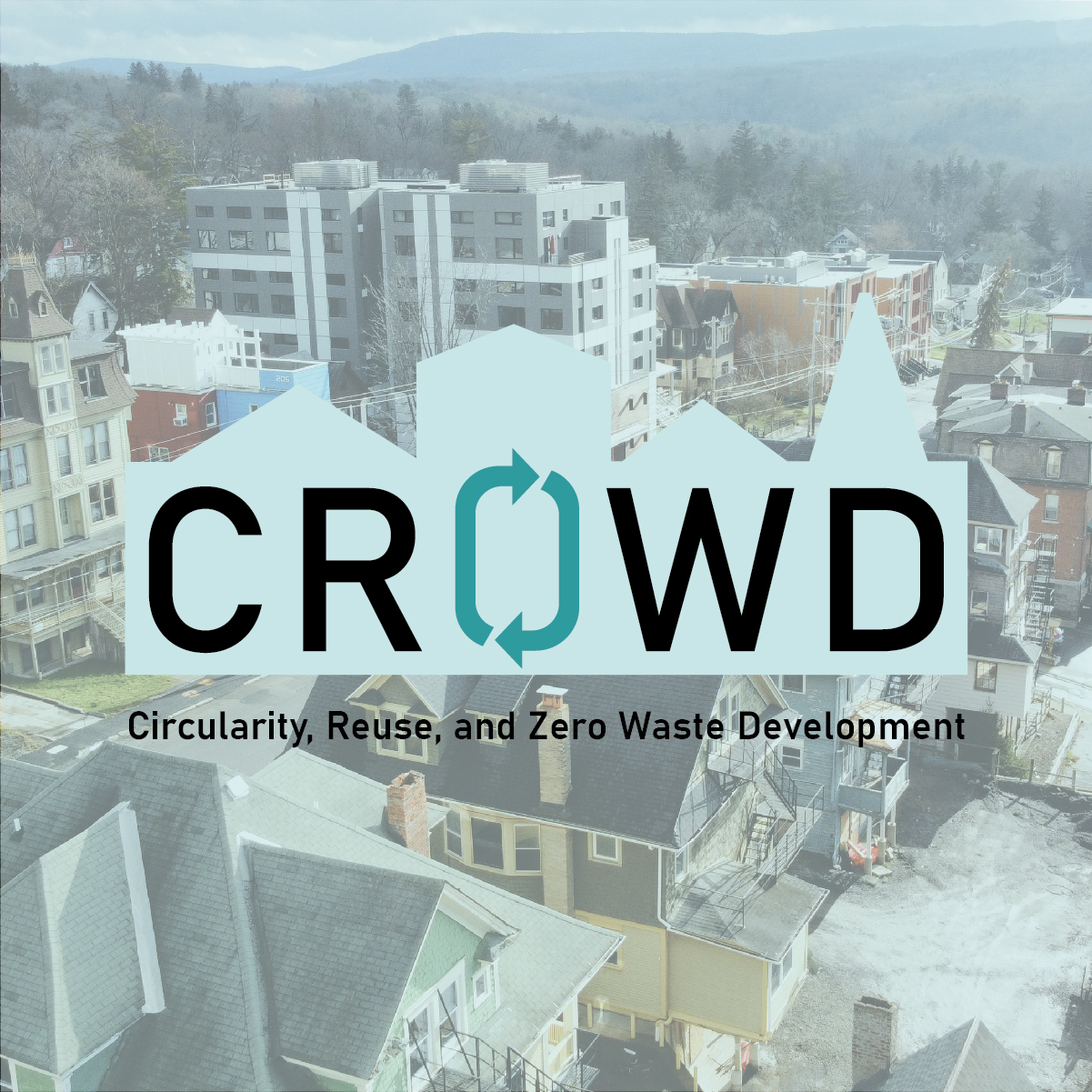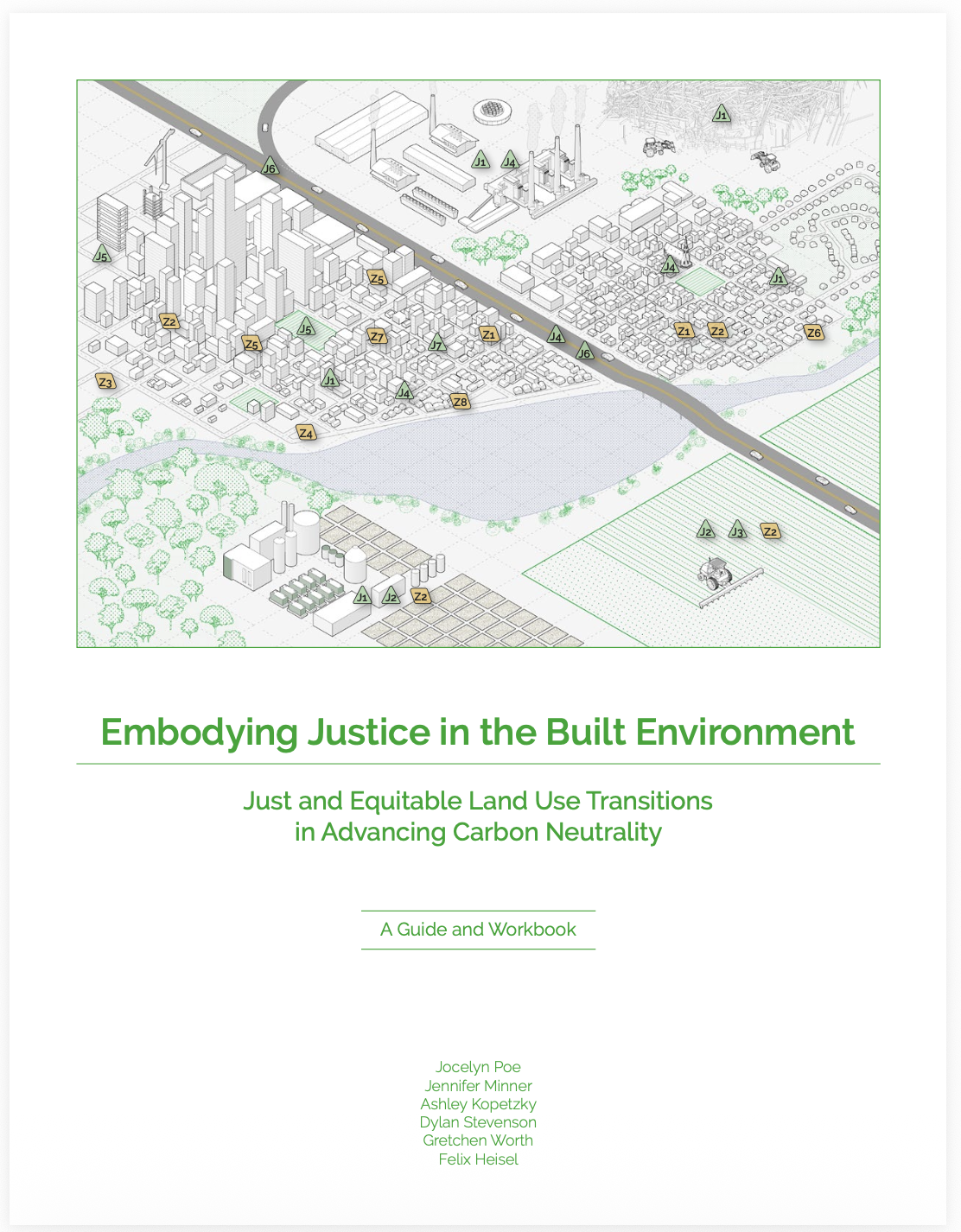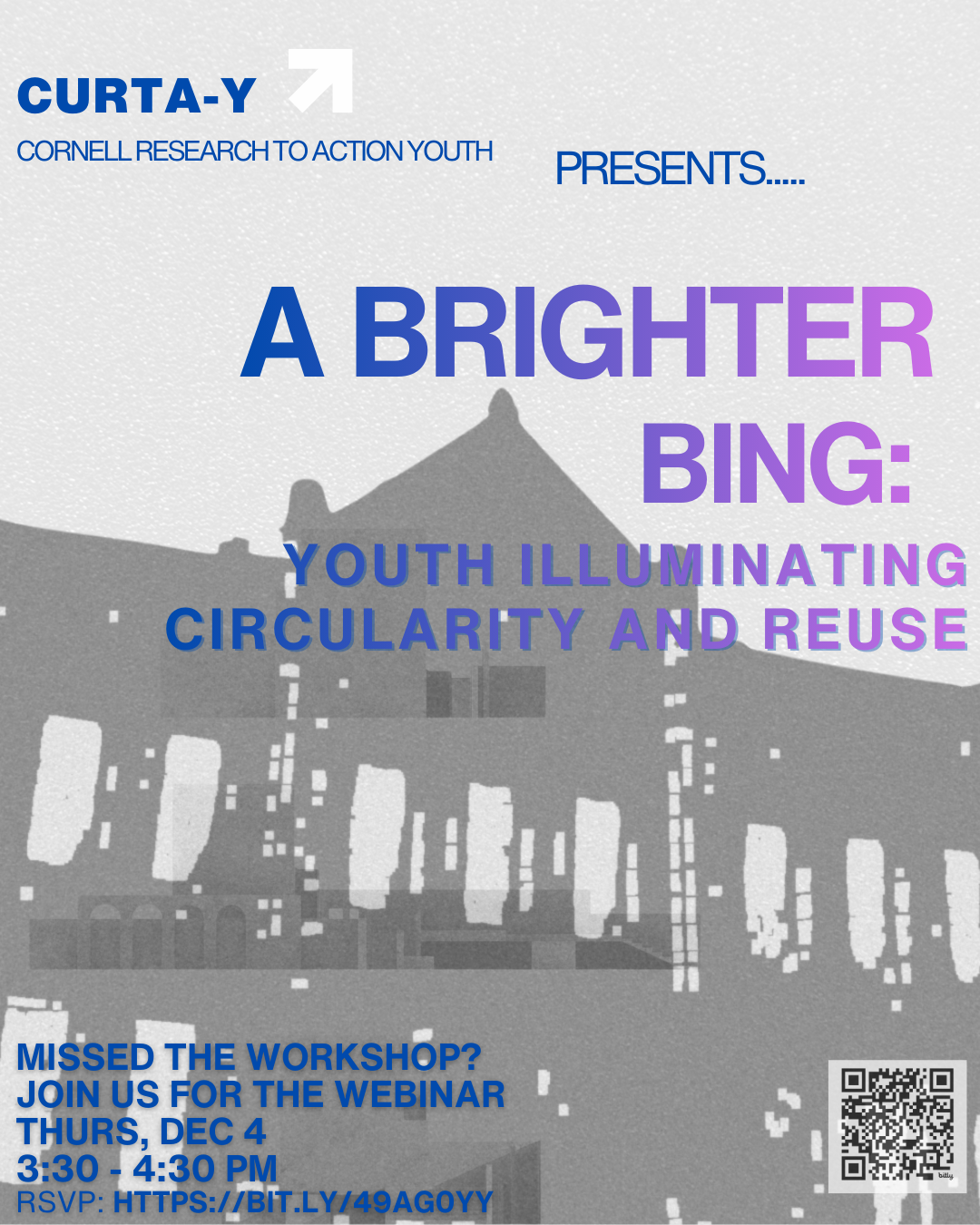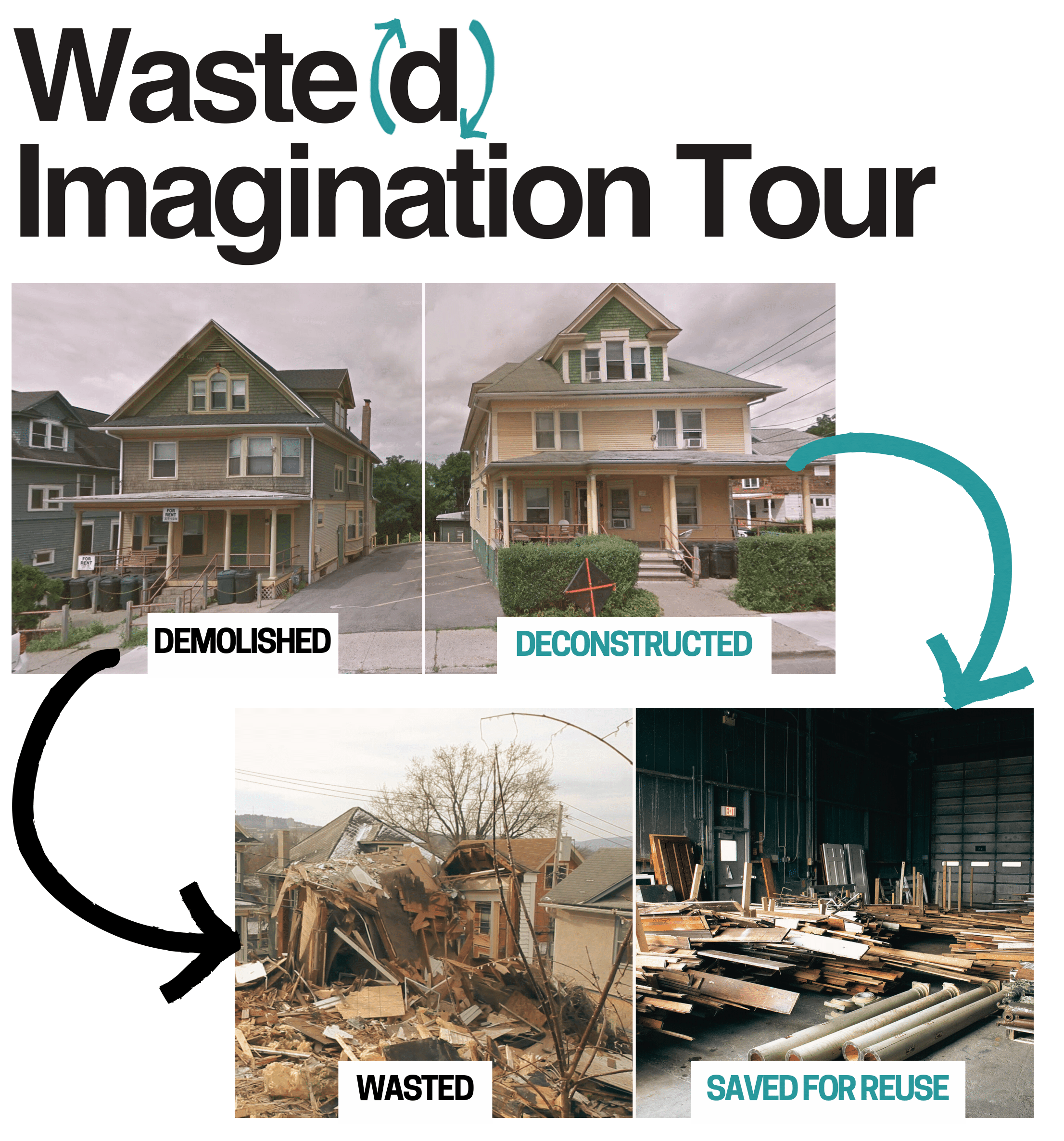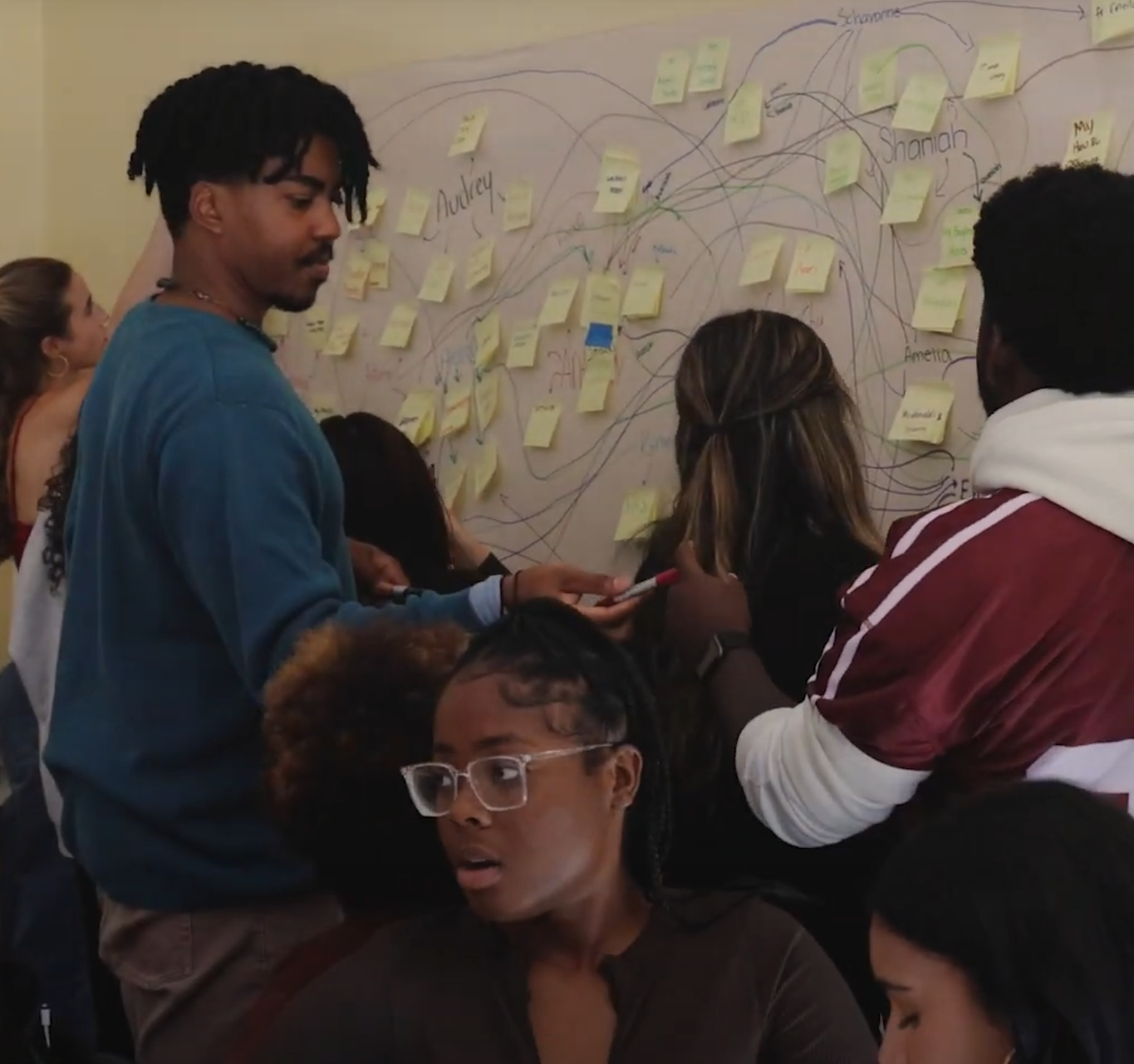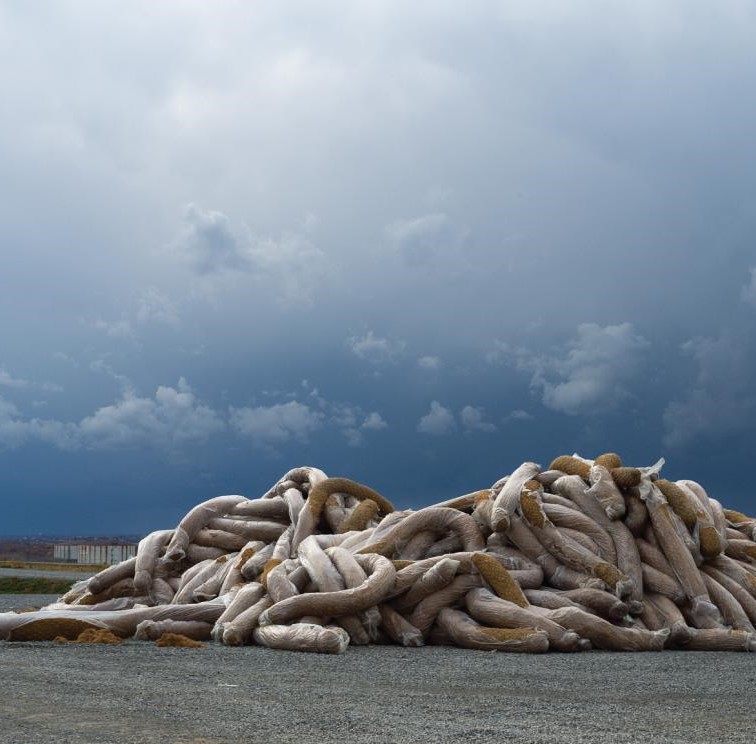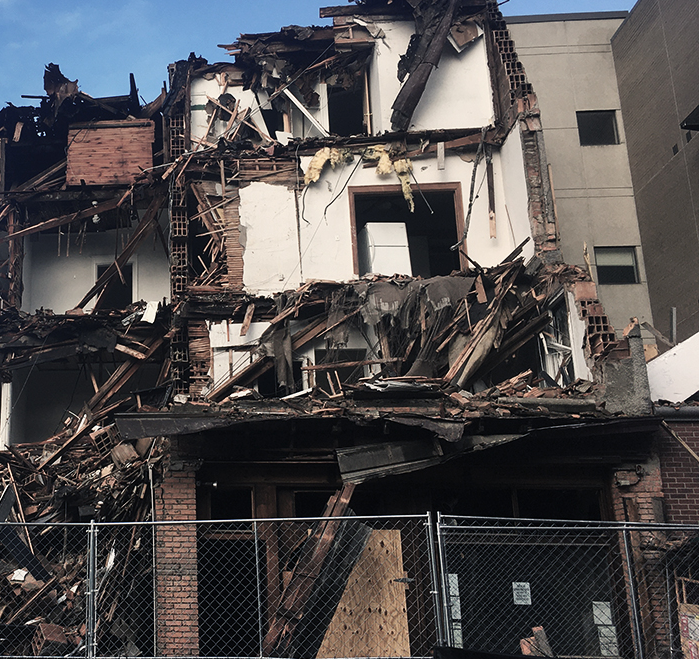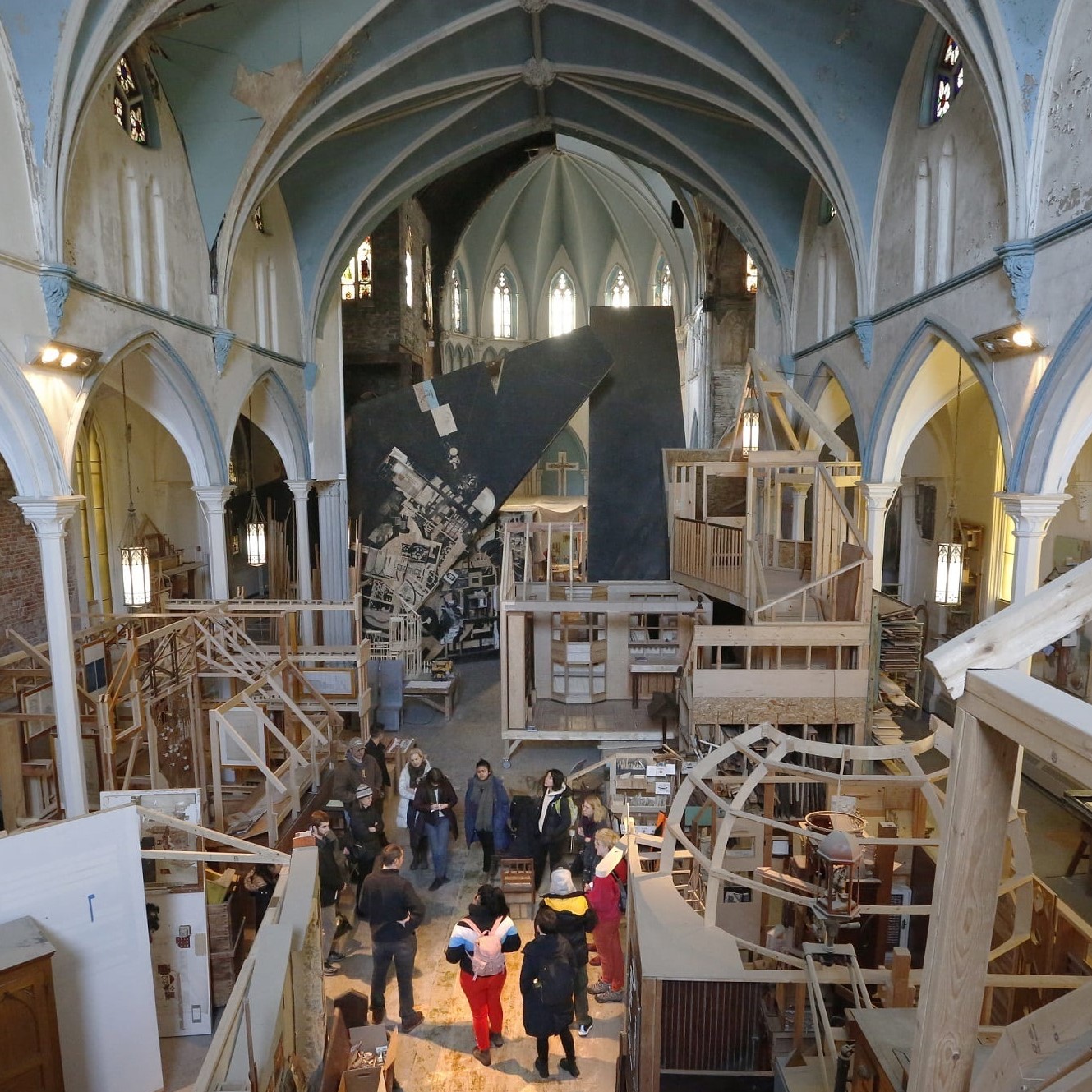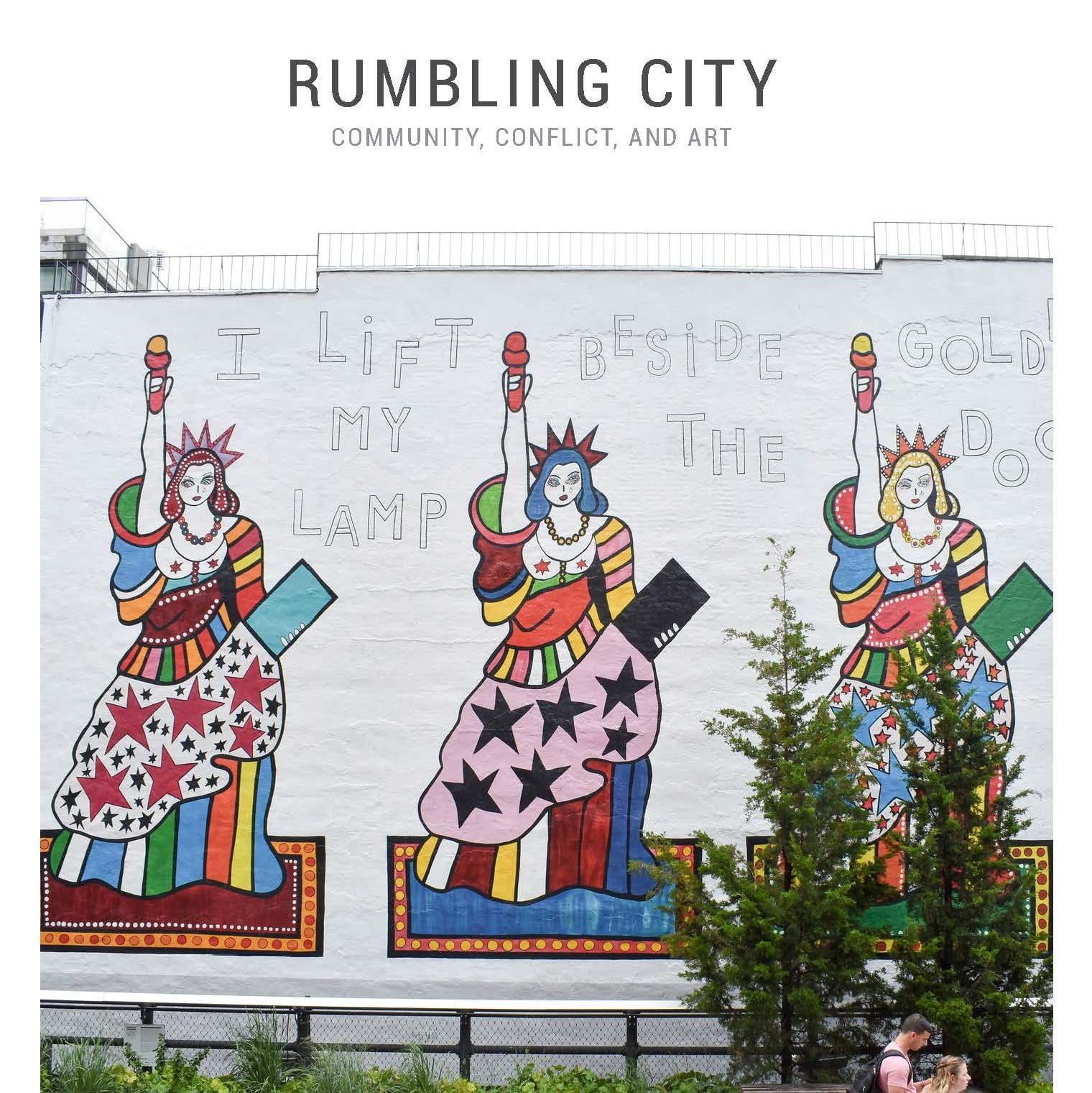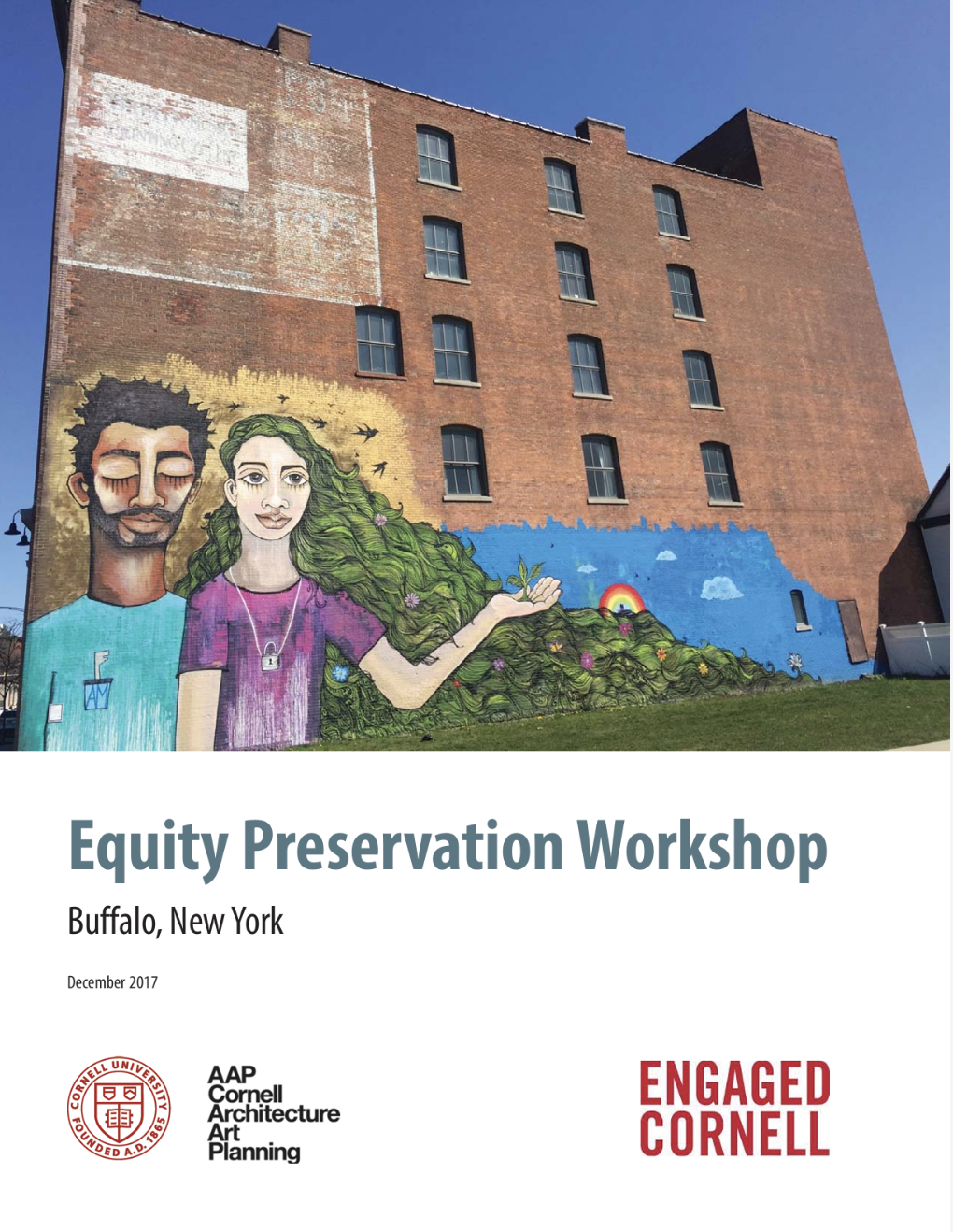Collaborative Research and Creative Action
How can we strengthen and build the heritage trades?
An Analysis of Preservation Trades across New York State
Led by researchers from Cornell University’s Department of City and Regional Planning, with a supporting gift from the Preservation League of New York State, this research project will provide a comprehensive assessment of New York’s preservation trades labor market, economic impact, and existing workforce development programs.
Tracing the social and spatial impacts of events
Mega-events: Urban Spaces and Memory
Mega-events, such as World Expos (also known as World Fairs or International Exhibitions) and the Olympics games, are large-scale mega-projects that restructure urban space in host cities. Coordinated by international organizations and enacted by host countries and cities, mega-events provide case studies for the study of urban redevelopment schemes and their impacts. A series of research projects and classes trace change over time at former mega-event sites, analyze controversies over urban development and displacement, and explore the preservation and interpretation of complex histories and questions of equity and justice, preservation, and sustainability at these sites.
REALTIME URBANISM LAB AND JUST PLACES LAB
Modeling Circular Scenarios and Visualizing Preservation within a Full Spectrum of Reuse
Working together, Professor Jenni Minner’s Just Places Lab and Professor Farzin Lotfi-Jam’s Realtime Urbanism Lab are applying innovative modeling techniques to the challenges of climate change mitigation and decarbonization in Ithaca. The research project’s aim is to assist stakeholders and the general public in understanding a full spectrum of reuse in the built environment through exploratory scenario planning incorporating agent-based modeling, 3D modeling, and life cycle analysis.
2020 – ongoing
Circularity, Reuse, and Zero Waste Development
The Just Places Lab is one of the founding partners in the CR0WD (Circularity, Reuse, and Zero Waste Development) network. CR0WD developed out of an alliance of community and academic leaders concerned with a vast system of building material waste within New York State. CR0WD seeks to advance sustainability, resilience and green jobs within the built environment. CR0WD partners conduct research and community engagement related to developing climate resilience through conservation of the built environment.
2024 - 2026
Embodying Justice in the Built Environment
Embodying Justice in the Built Environment is a framework presented in a series of guides and workbooks for government agencies and community organizations seeking to center justice and equity in their work toward building carbon-neutral futures. The Carbon Neutral Cities Alliance funded this research, and its staff and member cities participated in its creation.
2023 - 2026
Cornell Urban Research to Action - Youth (CURTA-Y) Illuminating Circularity
Cornell Urban Research to Action–Youth (CURTA-Y) is a program of the Just Places Lab that connects Cornell University students with high school students in the Binghamton tri-city region of New York to identify opportunities for creating a more circular and sustainable built environment in their community.
2022 - Ongoing
Waste Imagination: How City Landscapes Can Be Remade
The Just Places Lab seeks to illuminate the ways in which city planning and visual media can aid in the transformation of public imagination about our relationships to waste, the built environment, and care of places. This series of exhibitions and research projects funded with a grant from the Clarence S. Stein Institute for Urban and Landscape Studies reimagined building construction and demolition debris as materials for construction of new, more socially just places. This project also traces the remediation of a massive municipal solid waste landfill into a park of enormous ambitions and proportions.
A Regional Artistic Exploration with Youth by Kellen Cooks
Dreaming-on-Hudson
The Dreaming-on-Hudson project involved developing interactive mapping activities and place-based lessons that engage students’ spatial imaginaries and root sociological concepts in place and lived experiences.
October 10 – November 4, 2022
Freshkills: An Exhibition by Artist Jade Doskow
The Just Places Lab seeks to illuminate how city planning and visual media can aid in the transformation of public imagination to see urban waste as a resource in the remaking of city futures. With the support of the Clarence S. Stein Institute for Urban and Landscape Studies, the Cornell Council for the Arts and the Department of City and Regional Planning, the Just Places Lab organized an exhibition by artist Jade Doskow that ran from October 10 – November 4, 2022 in Cornell AAP’s Hartell gallery.
2020-Ongoing
Demolishing Stories
These are a selection of case studies of demolitions in Ithaca and Auburn, New York. These stories illuminate the urban policies as well as individual decisions that lead to demolition. These studies have been undertaken by students in the graduate class Land Use and Spatial Planning Methods and also by Jason Rearick in the course of completing an exit project. This project also informs policy work being conducted with the Circularity, Reuse and Zero Waste Development (CR0WD) network.
Explorations in creative place-keeping
Art Re-building Cities and Collaborations with The Assembly House
In several ongoing initiatives, Minner and students in the Just Places Lab have explored how art and creative place-making contribute to building and preserving the city - including its social identities, built environment, sense of place, and memories. Jennifer Minner has taught courses that bring together explorations in these domains including: Just Places? Community Preservation, Art, and Equity (Spring 2019); and Art, Preservation, and the Just City (Spring 2020), and Art Re-Building Cities (Spring 2021).
2020-2021
Building Imaginaries / Just Places Educational Kits
Students in Art Preservation and the Just City, an upper-division undergraduate and graduate special topics class, produced a pilot curriculum bringing together themes of creative practice, community, and social justice. Students prepared individual contributions to a shared educational kit or curriculum for youth focused on visualization of city systems, place patterns, community, and memory
Core Concept / 2017 Workshop
Equity Preservation
The concept of 'equity preservation' emphasizes care for communities in such a way to achieve equitable outcomes and reinforce local community investment in the future of a place. The phrase is also meant to invoke the foundational ideas of 'Equity planning,' which called for focusing public resources on those who are most in need.* It also evokes 'sweat equity' and of the value of material preservation and building reuse as well social preservation. Ideally, equity preservation involves alliances that bring together historic preservation, social justice, and community development efforts.



